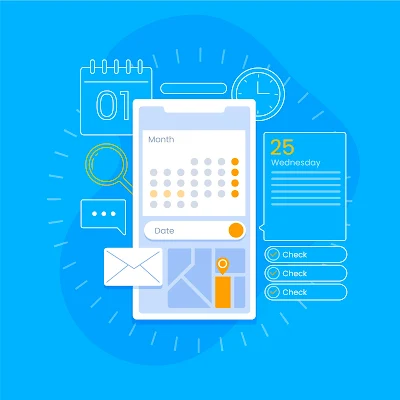While Google Calendar works great, Apple Calendar does its job and Notion Calendar looks promising. But using all three at once? Things get messy, fast.
The sync nightmare hits immediately
Apple Calendar and Notion Calendar don’t communicate at all with each other. There is no direct connection between them, you have to manually export .ics files from Apple and then import them into Google Calendar, all with the hope that Notion picks them up from there.
Once you add a new event in Apple Calendar, this manual process perpetually breaks. Google Calendar becomes your forced middleman. Everything has to flow through it if there’s any chance to keep things synchronized. Even then, the sync between Google and Notion isn’t flawless either.
Double booking becomes your new hobby
Try to use this setup and here’s what actually happens. While taking a break, you create a quick meeting on Apple Calendar for your lunch break. Later that day, you go on Notion to plan and execute your week. You don't see that lunch meeting because it never synced over.
Then you have a mishap when attempting to schedule a client call that should be held with the rest of the team because the rest of the team decides to hold theirs at a particular overlapping time. Boom. Double booked.
One of the most common consequences of untethering one’s calendar to an automated online calendar update is this issue of being double booked. Meetings scheduled on one calendar clash with other meetings set up on other calendars, due to changes taking an eternity to sync, if at all.
The Manual Update Trap
You actually go ahead and secure/book an event on all your calendars just to ensure you are not missing any events. Meeting with Sara? Should I schedule it at 2 PM? Google Calendar? Apple calendar? Notion? This becomes a paradigm for many meetings.
Now if she goes ahead and pushes the meeting to 3 PM, you subsequently overbook the other 3 and 2 places. The moment you forget to update one or two places becomes back to the double booking cycle.
The process becomes mentally taxing, exhausting and distributed across any number of calendars. You are no longer managing a singular calendar, but a whole system where you spend effort gaining ability over a complicated system.
Notification Madness
Three calendars also means triple notification overload. Your Notion buzzes because of Google Calendar, then Apple Calendar sends its alerts and we guess what? Notion is next. Worse still - sometimes, you might receive notifications for dates and events that were already removed via one app, but for some reason still remain in another.
Lol. Notifications make syllabus even more automated. If to ease the ballooning workloads people pretend to be like slackers, suddenly this EVP leak grants protection from actually good ones for the unfortunate calendaring system.
Time zones make everything worse.
Every platform has its own way of dealing with time zones. Google Calendar does a pretty good job with it. Within the Apple ecosystem, Apple Calendar functions adequately. Notion Calendar can become quite muddled, especially when syncing Google Calendar events.
Try booking a call with a person who is in a different time zone. Each calendar will show different times, causing confusion on when the meeting is going to take place.
The collaboration breakdown
Your team books meetings and manages events using the shared Google Calendar. For personal things, you use Apple Calendar. Notion Calendar seems great for project management and planning. It sounds organized, right?
Not really. When your teammates are looking for free time, they can't see your Apple Calendar events. You don’t see updates on Google Calendar while focusing on Notion. Everyone moves through different main systems, so shared calendars become untrustable.
What actually works instead.
Choose one calendar that serves as the planning hub. This can usually be Google Calendar since it integrates with the most things. Other calendars can be used as read-only viewers.
Primary Calendar must be set up with other platforms to ensure proper sync. Trying to create events in multiple places will only lead to adding to the chaos. Automation tools should not be relied on unless they have been tested thoroughly.
The difficulty of making all three calendars work together is a problem for users. Platform incompatibilities add to the already long list of issues where users are stuck with.
Photographers, business people, and a large number of professionals face issues due to multiple calendar app usage. These include failure to sync which results in missed meetings and erroneous bookings. The plethora of unmatched manual work makes updates too difficult to manage. Trying to keep three different systems organized is far too taxing. For the best results, stick with one and use others just as needed.


